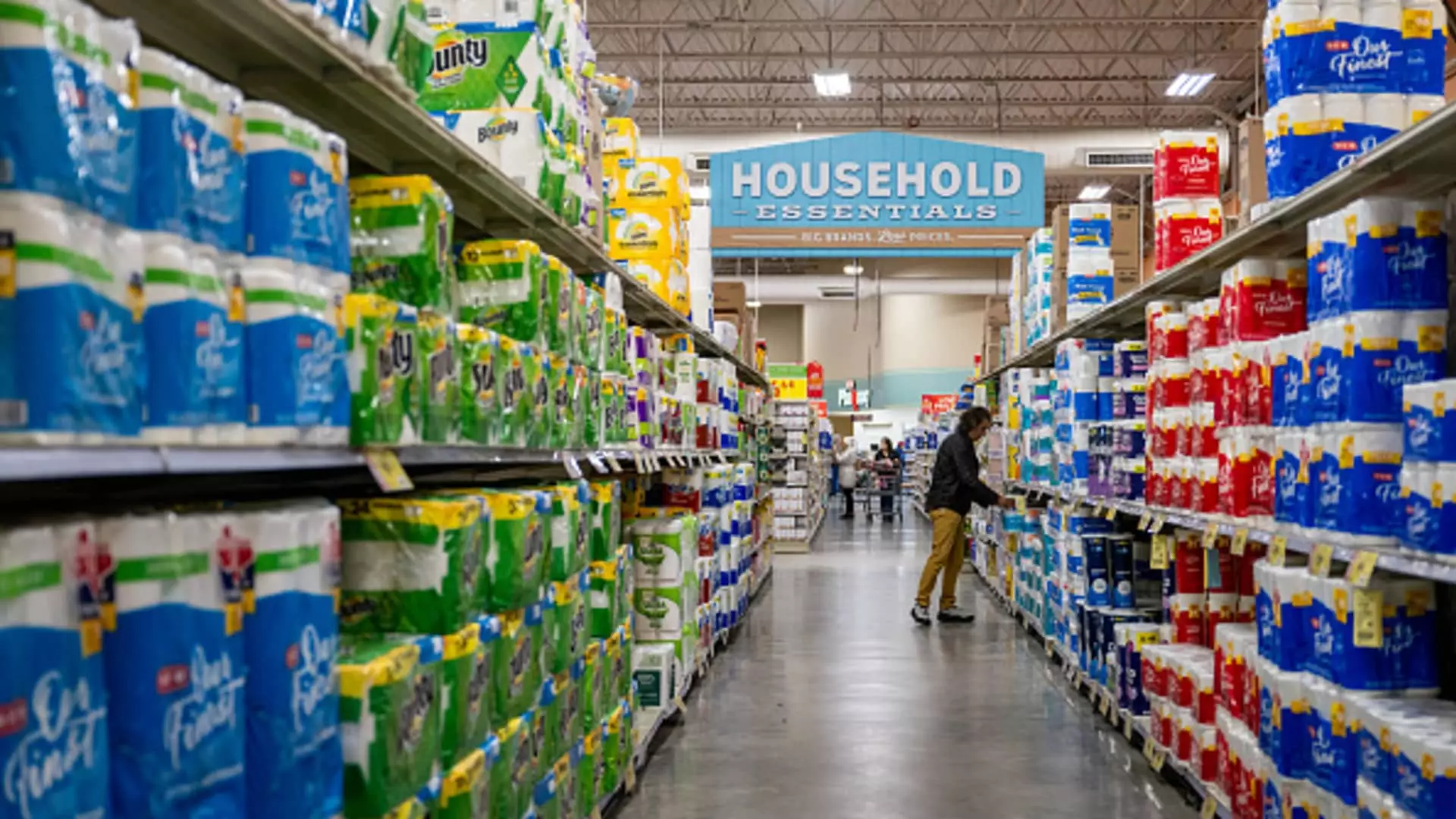Get ready for a jolt—your next grocery bill is set to hit harder than your morning espresso. As the Trump administration ramps up tariffs on over 180 countries, consumers are bracing for an inevitable spike in prices for everyday staples: coffee, bananas, vanilla, and even toilet paper. While the administration touts this move as an effort to bring jobs back to the U.S., it seems utterly detached from the reality faced by American households. The aim to prioritize American manufacturing may be noble, but the means employed—broad tariffs that inadequately consider domestic supply limitations—reveal a grave misunderstanding of basic economics.
The government’s intention to boost local jobs falls flat when you realize a substantial portion of our everyday needs cannot be sourced domestically. According to the Consumer Brands Association, pivotal components that make our diets and daily lives functional are imported. The fervent rush toward an “America First” trade policy overlooks the existing reality: many American companies already abide by domestic principles, but they rely on imports for essential ingredients. In a quest for political gain, our leaders seem to have blinders on, ignoring the practical aspects of consumer economics.
Recipe for Disaster: Ingredients Out of Reach
Picture this—sipping on your favorite coffee, topped off with Mexican vanilla, only to discover it’s becoming increasingly unaffordable due to unexpected tariffs. The CBA warns that the new tariffs will disproportionately impact goods with limited domestic availability. For instance, soil and climate conditions in the U.S. severely limit our ability to cultivate staples such as cocoa and tropical fruits, making imports essential. What is alarming is that our dependence on global supply chains is being ignored in the name of protectionism. The administration appears to fail to grasp that “America First” cannot simply mean domestic sourcing when those sources do not exist.
With nearly 40% of bananas imported from Guatemala facing a 10% tariff, shoppers will not just be experiencing sticker shock—they will be forced to reconsider their weekly shopping patterns altogether. The ramifications are dire; families that are already navigating tight budgets will inevitably find themselves spending more on basic groceries, pushing many toward Food Bank reliance and overwhelming health disparities in communities dependent on affordable sustenance.
The Real Cost: Everyday Products Get Pricier
Just when you thought your grocery column was complete, here comes another dose of reality. Household necessities—think toilet paper, diapers, and lotions—won’t escape the fallout from these hefty tariffs either. Manufactured goods that rely on inputs like wood pulp and palm oil will see price increases as tariffs take effect. A staggering 32% duty on palm oil imports from Indonesia not only creates a burdensome strain on manufacturers but spills directly into our wallets.
The irony is not lost here: while the stock market fluctuates, trading gains in consumer staples represents an eerie capitalistic contrast to the struggles of the everyday consumer. Major corporations like Procter & Gamble and Coca-Cola may thrive amidst these disturbances, enjoying higher stock prices even as their customers lament the increasing costs of living. Appealing to investors over families marks a disturbing trend, where profits overshadow ethical consumer considerations.
The Economic Disconnect: Misguided Policies Affecting Families
This entire debacle underscores an unsettling truth: policymakers may be making decisions rooted in political theatrics rather than genuine concern for American families. The wholesale discounting of the interconnectedness of global supply and its impact on consumer accessibility is baffling. A consumer-first approach should be paramount, yet our representative political apparatus appears misguided. Tariffs may not just inflate prices; they are a flawed economic weapon, antiquated for the modern era.
Additionally, shifts in agricultural practices in the U.S. compound these frustrations. Once, we were capable of producing oats on a large enough scale to meet demand. However, with the peak of oat production levels long behind us, imports now account for over 90% of the oats milled for American consumption. The inability to adapt and innovate our agricultural landscape has consequences—yet policymakers seem unwilling to address the root of the issue and prefer instead to apply quick-fix tariffs that harm consumers.
It’s time to rethink our approach and recognize that while fostering local jobs is essential, we must also prioritize the accessibility and affordability of everyday products that Americans rely upon. The situation is precarious and demands immediate attention before it devolves further into a consumer crisis. A progressive mind is called for, one that envisions a balance between local sourcing and global partnerships. If only those in power had the foresight to consider all dimensions rather than narrow, politically charged agendas.

